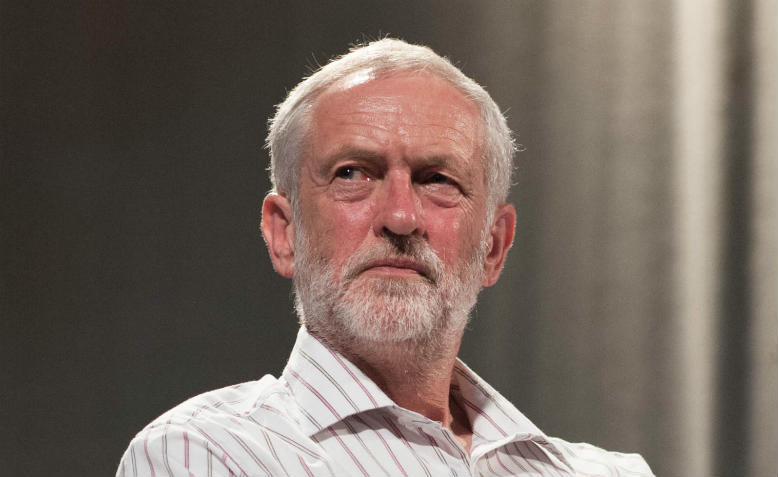 Jeremy Corbyn at a rally in Kilburn, August 2016. Photo: Jim Aindow
Jeremy Corbyn at a rally in Kilburn, August 2016. Photo: Jim Aindow
Labour’s NEC is under pressure to adopt the IHRA definition and some on the left are supporting this move. Alex Snowdon explains what’s wrong with this logic
The Labour Party’s national executive committee will debate its own proposed code on antisemitism on 4 September. Following weeks of media hysteria and attacks from the party’s right wing, it is expected to reject the proposed code. Instead, it will probably accept a version that contains all the ‘examples’ contained in the IHRA version, including a number of highly controversial statements that – if accepted into a disciplinary code – will curtail free speech on Palestine.
The last few weeks have seen retreats and compromises from some of those who are regarded as broadly supportive of Jeremy Corbyn’s leadership, whether in the affiliated trade unions or the grassroots constituencies. Among other things, this has illustrated the serious danger of much of the Labour left viewing politics through the prism of internal Labour Party battles. According to that distorting logic, all sorts of compromises can be justified.
This tendency is illustrated by the Skwawkbox website’s conclusion that giving ground on the antisemitism code is the right thing to do. This is apparently because striking a compromise – one that in reality is closer to the Right’s preferred option than to the Left’s preferred option – would be disabling for the Labour Right.
Firstly, this is wrong on its own terms. The right wing largely getting its way on the issue will embolden it. The attacks over Palestine, and more generally, will continue.
Its objective is not to have a powerful disciplinary measure at its disposal. That has never been the point. It is about smearing, dividing and demoralising the left – it is an exercise in destabilisation. It is also about shoring up support for Israeli apartheid against the tide of history, as ever more cracks appear in its walls.
Secondly, it is also wrong if the same logic is applied to other controversies. Such conciliation merely looks incoherent and inconsistent. Crucially, it allows a pull to the right to take place. This will generate disaffection among many grassroots left wingers and weaken Corbyn’s base.
It shows up the limitations of getting left wingers elected to the NEC and having a substantial organisation of the Labour left – Momentum – that is geared overwhelmingly towards elections (both internal and external) while downplaying political clarity and the championing of left wing positions. The left actually has to take on the political arguments and fight for certain positions that shift Labour to the left.
Thirdly, it is bad politics. It sacrifices having a decent position on Palestine for the apparently greater good of intra-Party manoeuvring. Palestinians – and their supporters worldwide – hope that Corbyn’s leadership marks an advance for the movement in support of justice for Palestine.
A left-led Labour government would, it is hoped, be an even more significant advance for Palestine, considering how this country has – since 1917 – been an important supporter of Zionism and later Israel. Labour’s approach to Palestine really matters.
Foreign policy is where Labour is at its weakest. This was also true in 1945-51 and at other times in its history. There is the opening for a different kind of Labour foreign policy. It would be a criminal and irresponsible waste to close that space down.
This is true in relation to Palestine – one of the great issues of our age – and in other areas of international politics.

